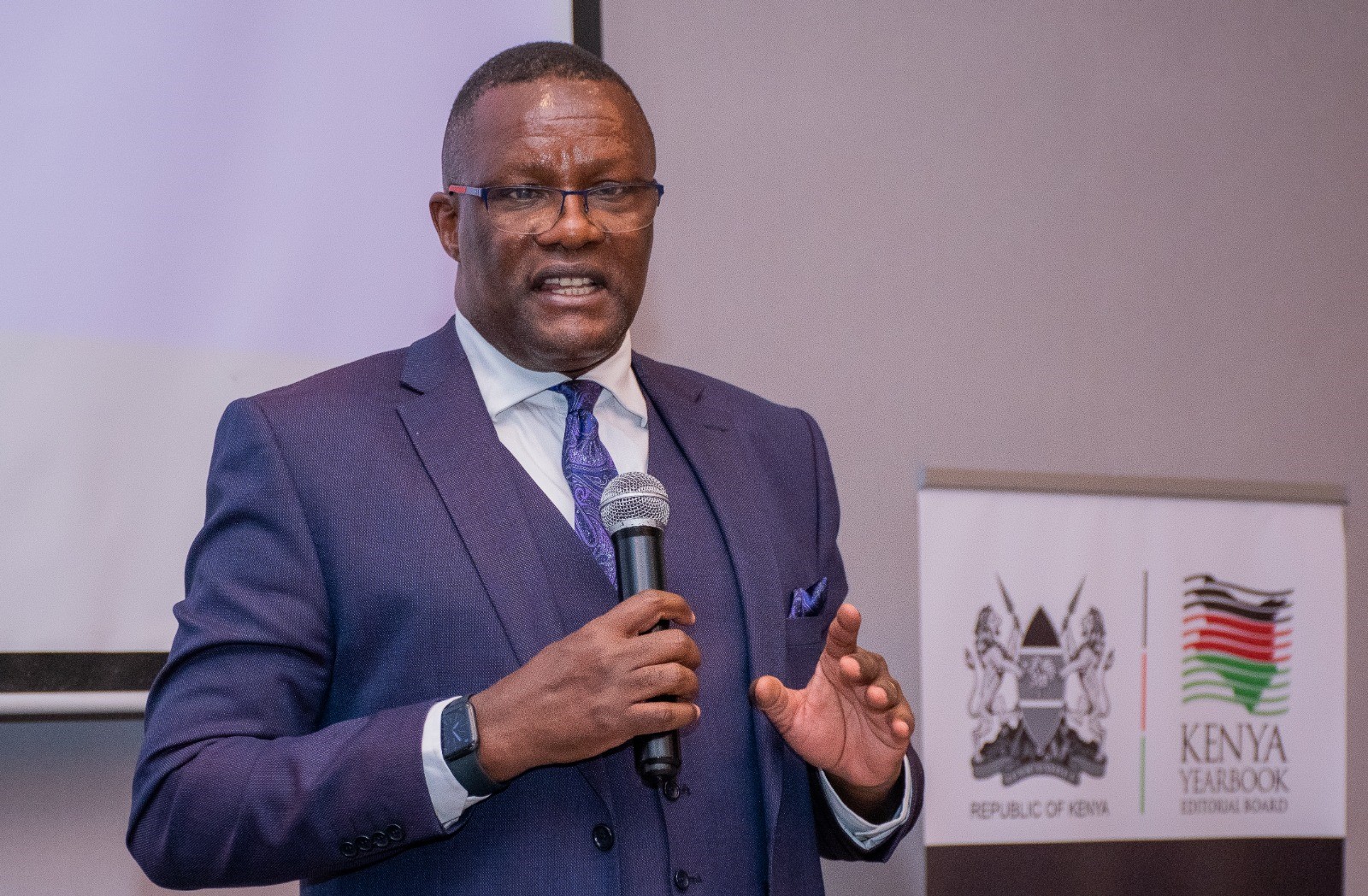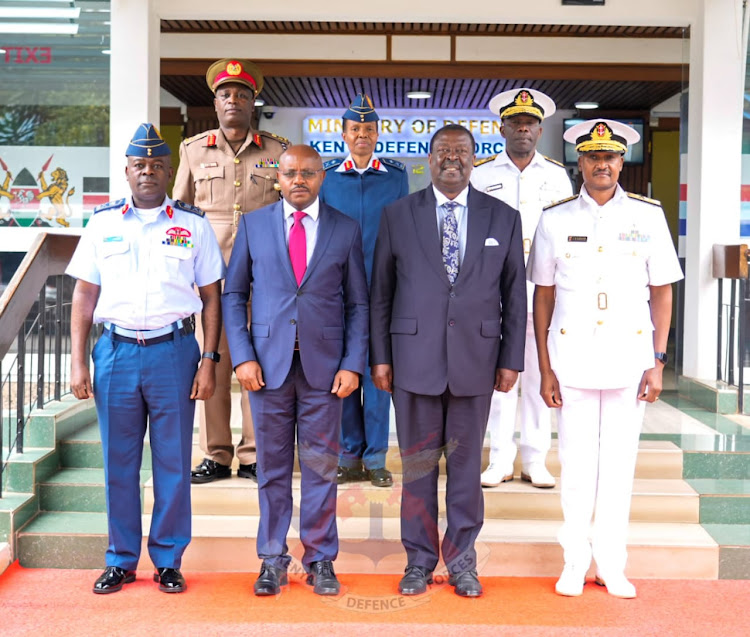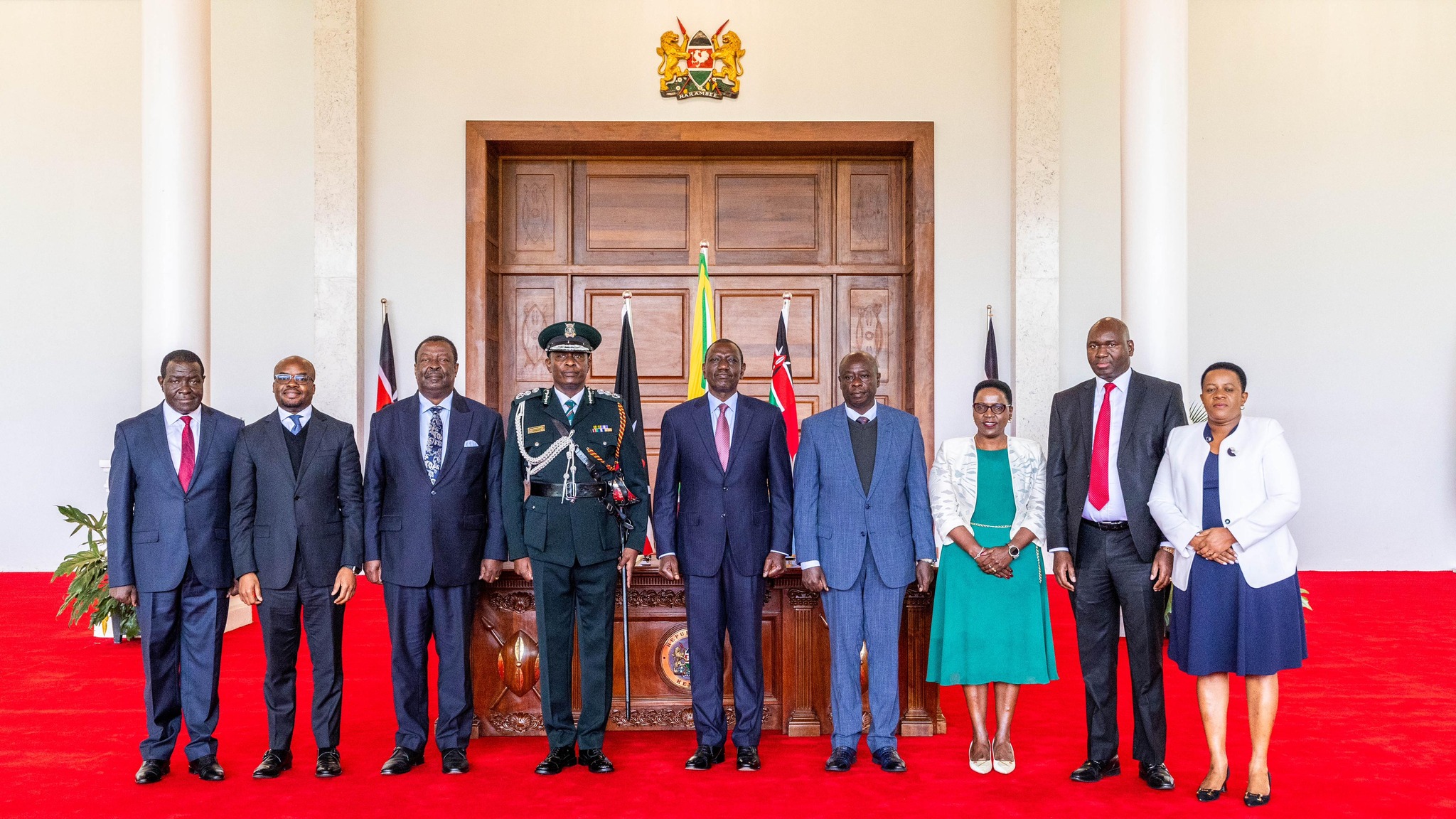
The Ministry of Information, Communications and the Digital Economy has launched its 2023-2027 Strategic Plan, a policy blueprint that will guide the Ministry to deliver its mandate in serving the citizenry and attaining their developmental aspirations.
The Strategic Plan is also expected to address emerging issues and challenges and empower staff, partners and the public with adequate information, with which they can hold the Ministry accountable.
The Plan has identified seven key result areas namely; policy, legal and institutional frameworks, digital superhighway and telecommunications infrastructure, digital government services and products, universal access to information, business process outsourcing/IT-enabled services and local content development, governance, finance and human capital development, cyber security, data governance and emerging technologies.
Speaking during the launch of the document, on Wednesday, at a Nairobi hotel, the Cabinet Secretary (CS) for Information, Communications and the Digital Economy, Eliud Owalo, expounded that the blueprint and roadmap will guide the Ministry in implementing its activities, projects and programmes for four years.
Owalo said the Strategic Plan formulated by the Ministry and key stakeholders in the Information Communication and Technology (ICT) sector ensured that key priority programmes and projects in the Bottom-up Economic Transformation Agenda (BETA), were implemented as planned.
“This project and programmes are crucial towards eradicating poverty, creating jobs, increasing revenue collection, improving our foreign exchange balance for economic growth and development,” he said.
“This Strategy will establish a national addressing system, revitalize the Postal Corporation of Kenya, Kenya Broadcasting Corporation and the Kenya News Agency, as well as roll out broadband connectivity, to the ward level,” said Owalo.
The Strategy will also be used in the installation of free public WiFi, digitization of government services, strengthening of data protection and enhancement of cybersecurity, besides setting targets for annual work plans, performance contracts and appraising staff performance.
He reiterated the government’s commitment to provide an enabling business environment that enhances access to information and digitally enabled startups and investments by leading multinational technology companies during the 2023-2027 medium-term period.
“This Plan goes further by ensuring that the Ministry’s vision of an informed and digitally empowered Kenyan society is aligned to the government’s transformative agenda, Vision 2030, Sustainable Development Goals, Africa Agenda 2063 and other National government priorities,” said the CS.
He said the Ministry has included the agriculture, micro, small and medium enterprises economy, housing and settlement, healthcare and the digital superhighway and creative economy pillars in its Digital Economy Blueprint and the Digital Master Plan 2022-2032 priorities.
“ICT sector in Kenya Vision 2030, is expected to contribute 10 percent to Gross Domestic Product of the Kenyan Economy, as an enabler it has contributed immensely to improve e-government services, e-business, e-commerce, entrepreneurship a digital skill while enhancing market competitiveness of the country’s products and services,” he added.
On resources, the CS said, the Ministry has a total resource requirement of over Sh. 456 billion against a projected budget of Sh. 168.3 billion, thereby, creating a resource gap of Sh. 287.5 billion over the period.
He, therefore, called upon the Ministry’s partners to assist in bridging the gap, to enable the ministry to realize its goal of implementing the strategy plan.
The CS called on all staff in the ministry to embrace commitment and teamwork to enable the ministry to achieve its mandate.
This plan will be a catalyst toward the future direction for the ICT sector, as well as spurring economic growth and transformation,” he stated.
He also thanked the German Deutsche Gesellschaft fur Internationale (GIZ) and other partners for supporting the Strategic Plan.
In his remarks, the Principal Secretary for Broadcasting and Telecommunications, Prof. Edward Kisiang’ani announced that the government has approved a new structure in the State Department of Broadcasting where it will have three positions of Communication Secretaries.
Prof. Kisiang’ani said the government is committed to protecting and revamp all its national institutions including learning institutions to enable the citizenry benefit from all government services and products.
“The government’s policy is to help our national institutions to operate well, we will not allow hospitals, government and learning institutions to be destroyed,” he stressed.
The PS said the government has adopted new methods of addressing challenges and will ensure through technology Kenyans will access electricity and internet in their homes.
Speaking at the event, the Principal Secretary for ICT and Digital Economy Eng. John Tanui said the Strategic Plan has prioritized the development of enabling infrastructure to ease the cost of doing business.






